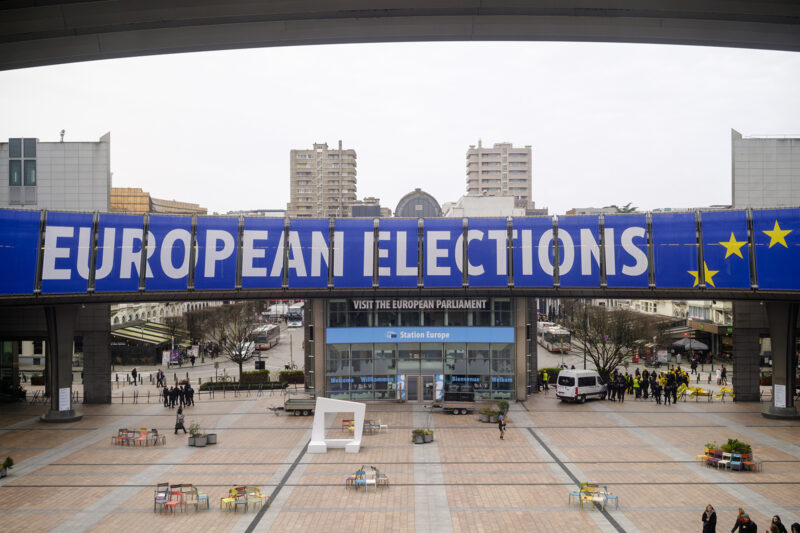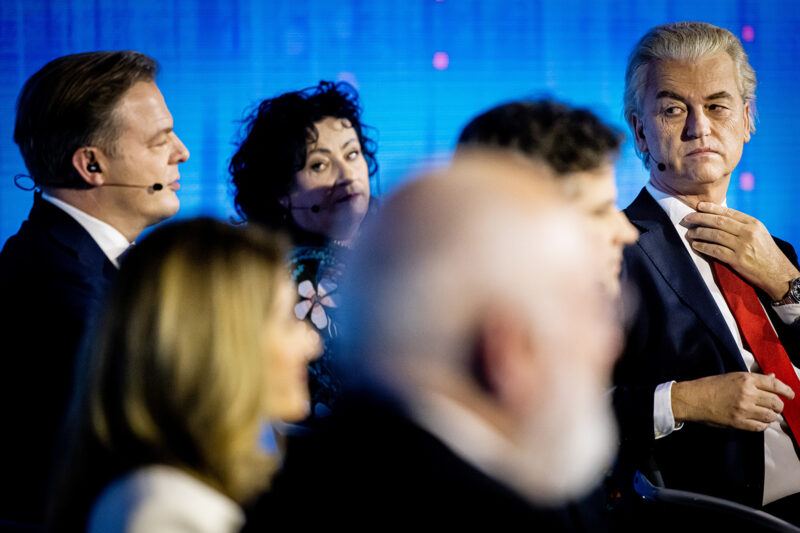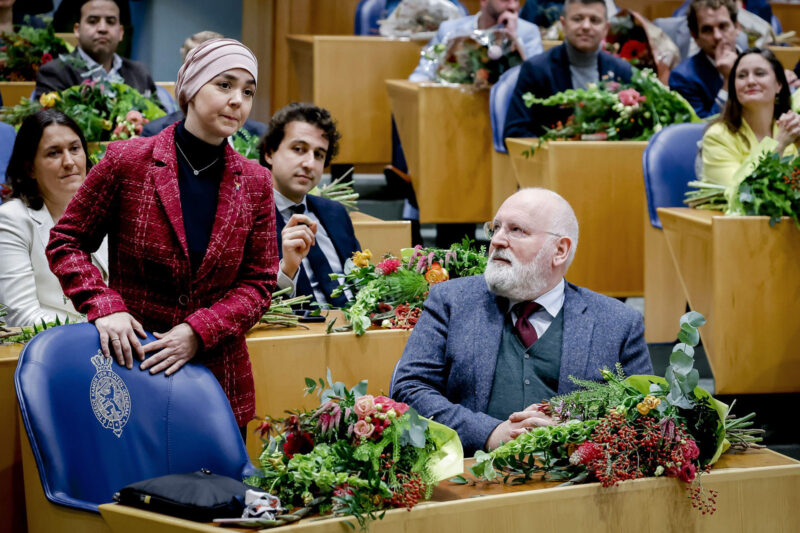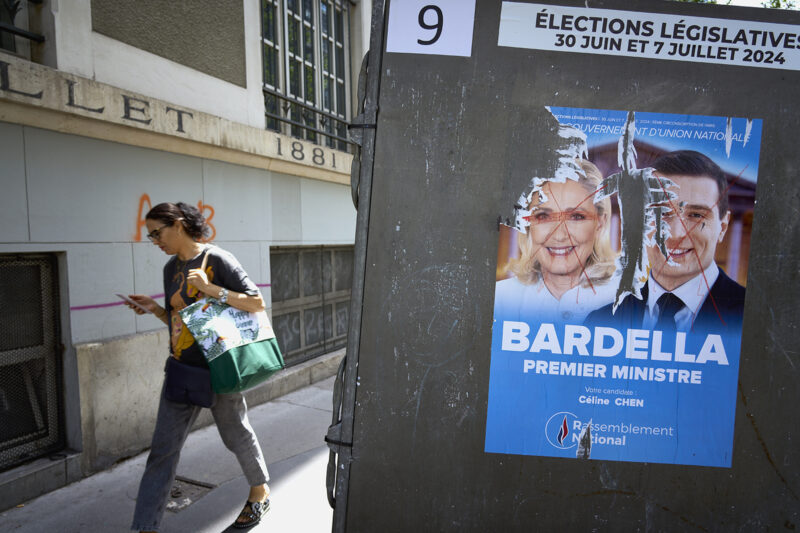Can France stop the EU’s fall to the far right?
Emmanuel Macron has called a snap election following his defeat in the EU elections. But will a centrist victory in France be enough to stop Europe’s slide into extremism?
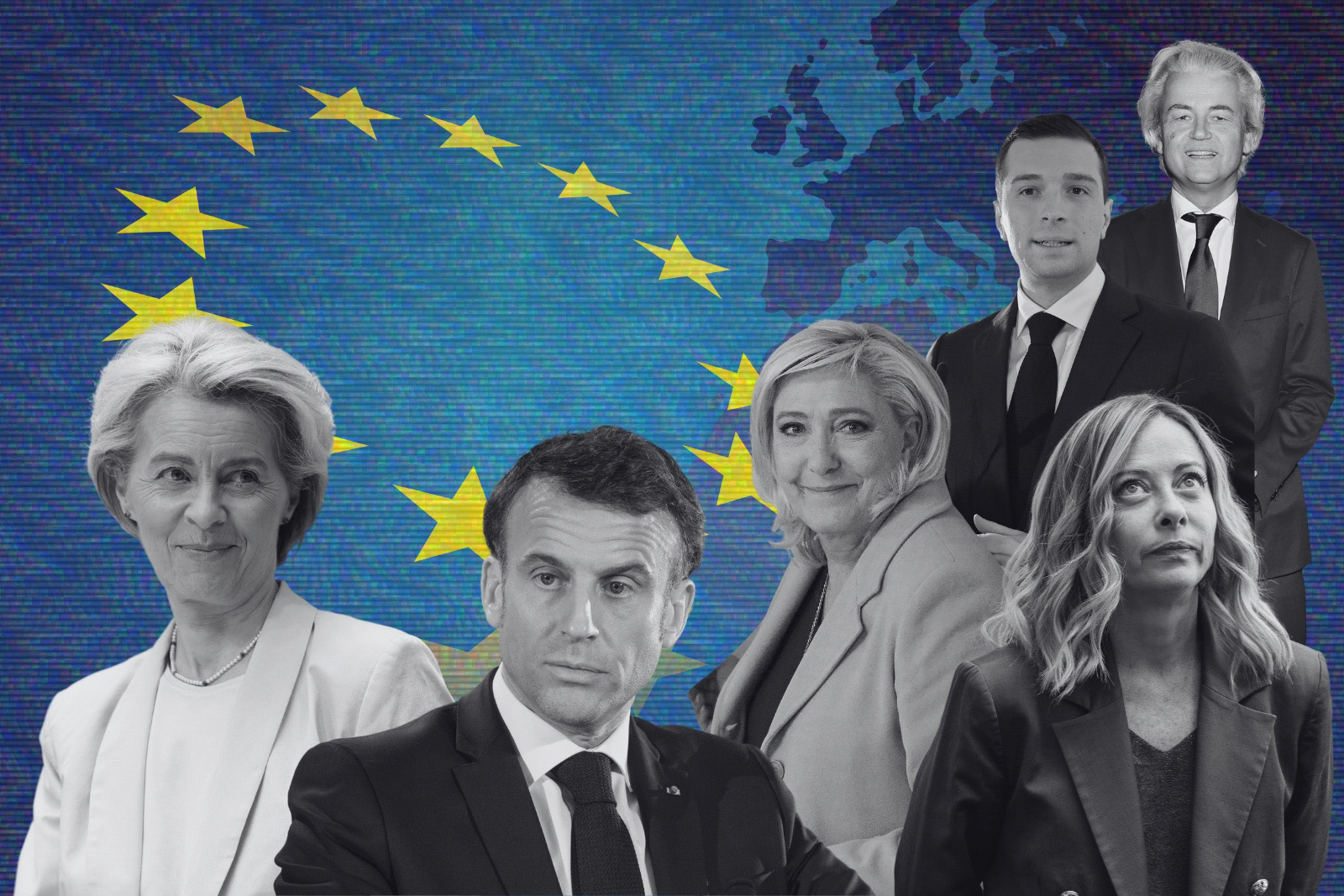
In the end, there was no far right takeover of Europe, but the EU parliamentary elections last week marked a significant step in the normalisation of ethno-nationalist and xenophobic political parties across the bloc. There is much cause for concern.
The moment is sobering for all progressive Europeans. It is especially personal, painful and dangerous for European Muslims and people of colour who, as human rights agencies have repeatedly warned, already face “pervasive and relentless” racism, with Islamophobia and antisemitism on the rise.
France, a leading and founding member of the 27-nation EU, offers a chilling example of how the marginal can become mainstream and the once-impossible, possible. President Emmanuel Macron unexpectedly called a snap election following the humiliation of his pro-European centrists by the far right National Rally (NR) in the polls on Sunday, when the nationalist party secured twice as many votes as his centrist alliance. The snap election sets France on a dangerous and slippery slope that may lead to the appointment of the country’s first far-right prime minister, who believes more in the politics of exclusion and discrimination than in liberté, égaliteé, fraternité.
The first round of this fateful French legislative vote will be held on 30 June — less than a month before the start of the Paris Olympics — with a second round scheduled for 7 July. Macron says he is holding the new polls to “clarify” the EU election results, but the French president is playing with fire. Like her father before her, Marine Le Pen, who leads the unabashedly anti-Islam NR party in the French National Assembly — and was runner-up to Macron in the last two presidential elections — has been trying to wrest power from the centrists for years.
Le Pen has invested her hopes of legislative electoral success in 28-year old Jordan Bardella, who took over from Le Pen as NR party leader in 2020 and led it to triumph in the EU elections. If he is able to repeat his stunning European election results, Bardella could soon be sitting in a fraught power-sharing agreement as prime minister with Macron as president.
EU elections are often used as protest votes so if centrist parties join forces, it is possible that Macron will manage to keep the far right at bay for the time being. But real damage has already been done. The president and his allies have recognised the far right. The leader of France’s mainstream rightwing party, Les Républicains, offered an alliance with NR – but faced a revolt from angry colleagues. The toxic narrative on Muslims, which is that Islam is incompatible with secular French values, has been normalised.
The far right has shaken the EU to its foundations in this election. In Germany, the extreme-right Alternative for Germany eclipsed chancellor Olaf Scholz’s Socialists and Democrats coalition. The Brothers of Italy party, which has neo-fascist roots and is led by Italian prime minister Giorgia Meloni, won more than 28% of the national vote and in Austria, the far-right Freedom party also topped the polls. Geert Wilders’ anti-Islam far-right party came second behind a Left-Green alliance in the Netherlands; and in neighbouring Belgium, the right-wing New Flemish Alliance (N-VA) emerged as the biggest winner, with the extreme-right pro-separatist Vlaams Belang in second place.
Not to be forgotten: the far right already leads national governments in Hungary, Slovakia and Italy and is part of ruling coalitions in Sweden, Finland and, soon, the Netherlands. None of this is surprising. The grim outcome of the polls had long been predicted — and feared.
True, the centre-right European People’s Party remained the largest bloc in the EU assembly, followed by the centre-left Socialists and Democrats, prompting reassuring comments from European Commission president Ursula von der Leyen that “the centre is holding”. As the EPP’s chosen candidate, von der Leyen is in pole position for re-election as head of the EU executive. Unfortunately, her self-soothing statement is not true.
Far-right parties will hold almost a quarter of the seats in the European parliament, enabling them to claim important roles like committee chairs and allowing them to put their stamp on the bloc’s climate policies, migration, trade and aid initiatives and relations with the global south. The most important reason that von der Leyen is wrong, however, is that her own EPP has been moving further and further to the far right with its leaders echoing and implementing policies inspired by far-right narratives on Islam, migration and foreign policies.
The EU’s future now rests on the coalitions that emerge in its new parliament, and on the composition of the next European Commission. Stemming the far-right tide will not be easy. The EU’s anti-racism action plan is running out of steam and only a small number of MEPs of colour who could champion anti-racist causes have been elected to the new assembly.
Sadly — at least for the moment — European voters are confirming our worst fears that the EU, built on an inspiring post-second world war promise of safeguarding liberal democracy, human rights and the rule of law, is increasingly in thrall to politicians who are unashamedly racist, xenophobic and anti-Islam. Here’s hoping that France will prove us wrong.
 Newsletter
Newsletter


